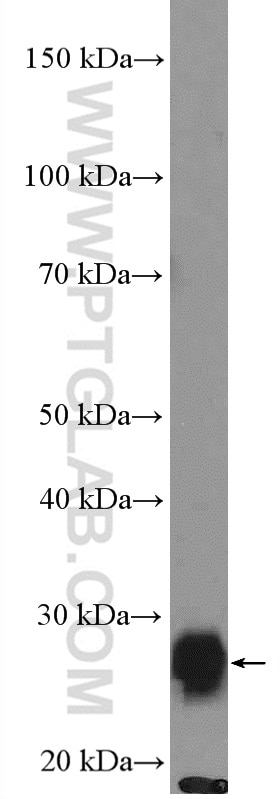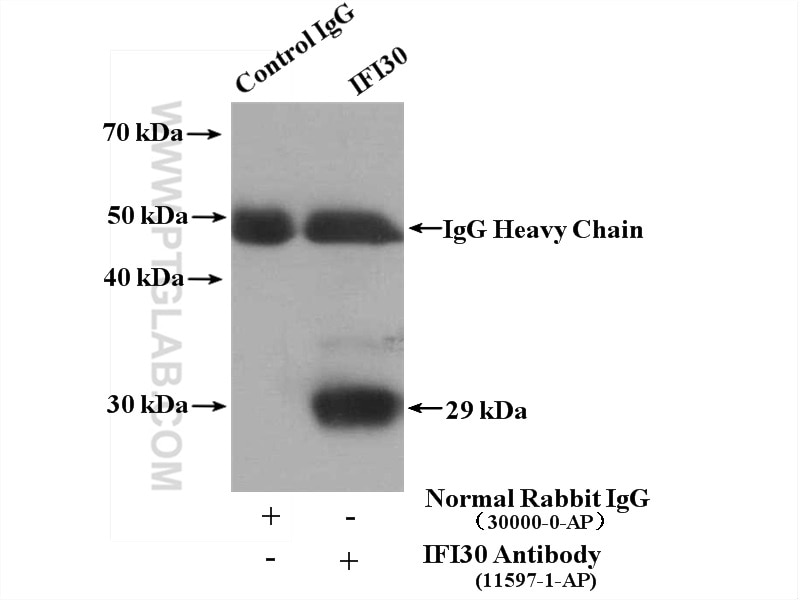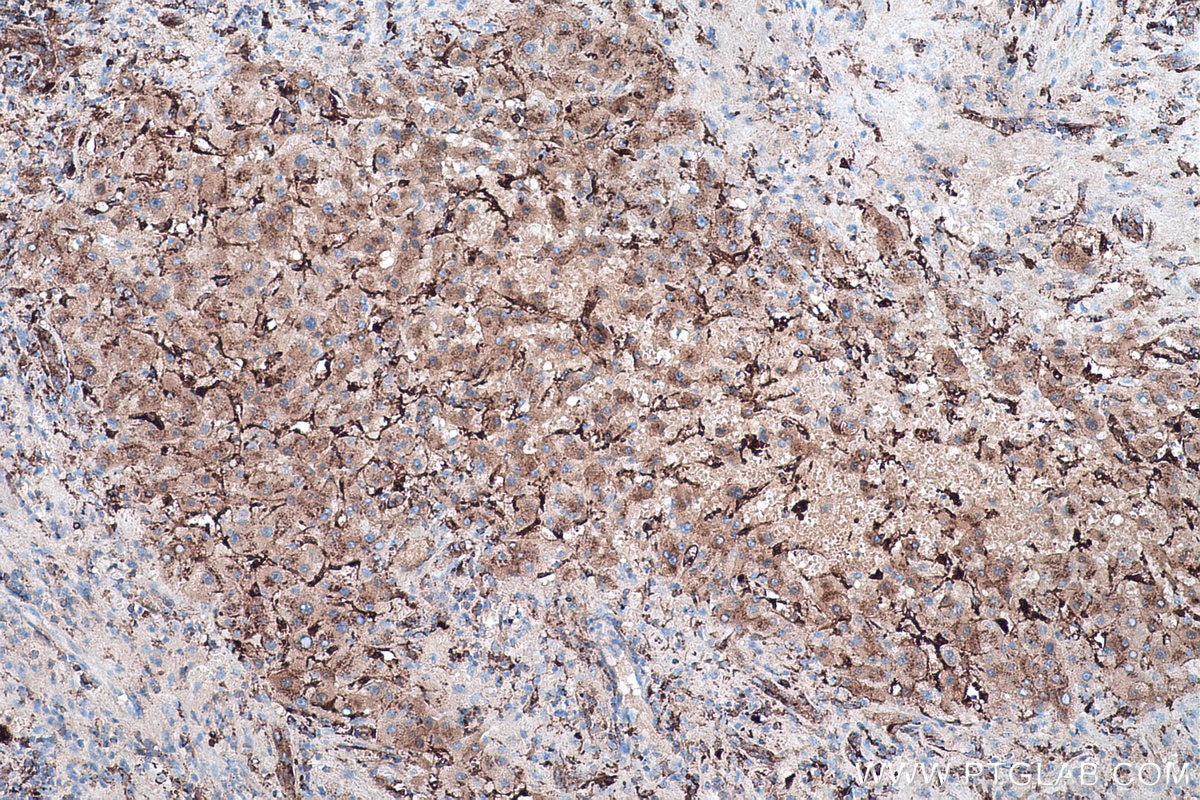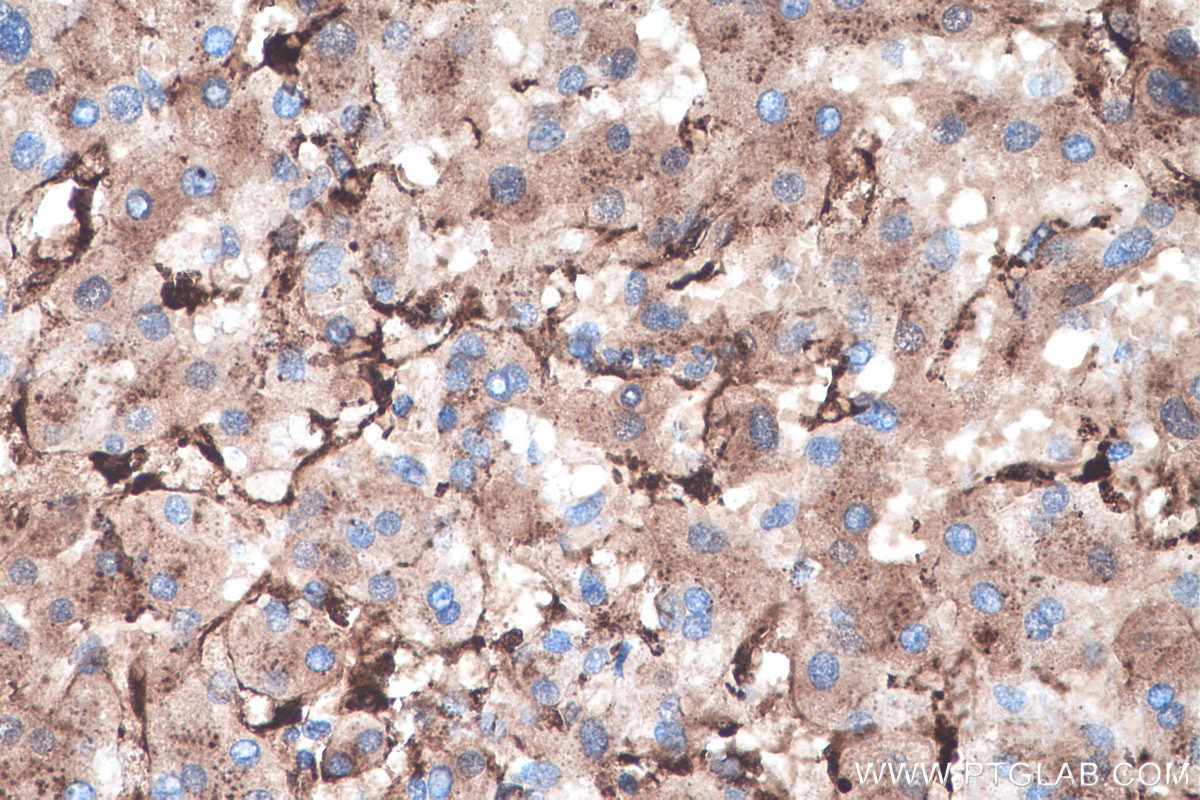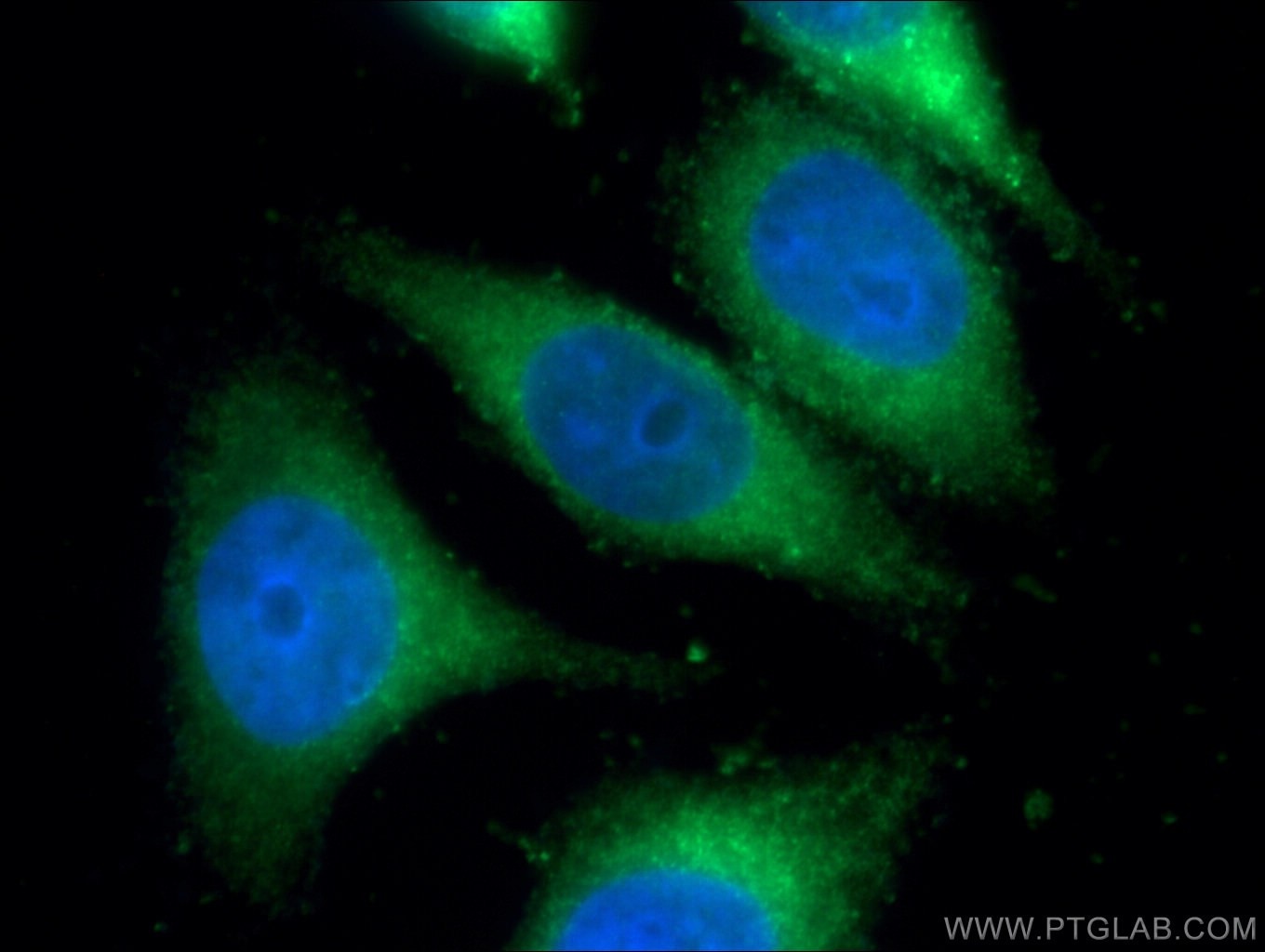- Featured Product
- KD/KO Validated
IFI30 Polyklonaler Antikörper
IFI30 Polyklonal Antikörper für WB, IHC, IF/ICC, IP, ELISA
Wirt / Isotyp
Kaninchen / IgG
Getestete Reaktivität
human und mehr (1)
Anwendung
WB, IHC, IF/ICC, IP, ELISA
Konjugation
Unkonjugiert
Kat-Nr. : 11597-1-AP
Synonyme
Geprüfte Anwendungen
| Erfolgreiche Detektion in WB | COLO 320-Zellen |
| Erfolgreiche IP | COLO 320-Zellen |
| Erfolgreiche Detektion in IHC | humanes Leberkarzinomgewebe Hinweis: Antigendemaskierung mit TE-Puffer pH 9,0 empfohlen. (*) Wahlweise kann die Antigendemaskierung auch mit Citratpuffer pH 6,0 erfolgen. |
| Erfolgreiche Detektion in IF/ICC | HeLa-Zellen |
Empfohlene Verdünnung
| Anwendung | Verdünnung |
|---|---|
| Western Blot (WB) | WB : 1:2000-1:12000 |
| Immunpräzipitation (IP) | IP : 0.5-4.0 ug for 1.0-3.0 mg of total protein lysate |
| Immunhistochemie (IHC) | IHC : 1:2000-1:8000 |
| Immunfluoreszenz (IF)/ICC | IF/ICC : 1:50-1:500 |
| It is recommended that this reagent should be titrated in each testing system to obtain optimal results. | |
| Sample-dependent, check data in validation data gallery | |
Veröffentlichte Anwendungen
| KD/KO | See 2 publications below |
| WB | See 5 publications below |
| IHC | See 4 publications below |
| IF | See 1 publications below |
Produktinformation
11597-1-AP bindet in WB, IHC, IF/ICC, IP, ELISA IFI30 und zeigt Reaktivität mit human
| Getestete Reaktivität | human |
| In Publikationen genannte Reaktivität | human, Maus |
| Wirt / Isotyp | Kaninchen / IgG |
| Klonalität | Polyklonal |
| Typ | Antikörper |
| Immunogen | IFI30 fusion protein Ag2178 |
| Vollständiger Name | interferon, gamma-inducible protein 30 |
| Berechnetes Molekulargewicht | 261 aa, 29 kDa |
| Beobachtetes Molekulargewicht | 29 kDa |
| GenBank-Zugangsnummer | BC021136 |
| Gene symbol | IFI30 |
| Gene ID (NCBI) | 10437 |
| Konjugation | Unkonjugiert |
| Form | Liquid |
| Reinigungsmethode | Antigen-Affinitätsreinigung |
| Lagerungspuffer | PBS with 0.02% sodium azide and 50% glycerol |
| Lagerungsbedingungen | Bei -20°C lagern. Nach dem Versand ein Jahr lang stabil Aliquotieren ist bei -20oC Lagerung nicht notwendig. 20ul Größen enthalten 0,1% BSA. |
Hintergrundinformationen
IFI30(interferon, gamma-inducible protein 30) is also named as IP30, GILT, IFI-30, MGC32056, IFI30 and belongs to the GILT family. It can facilitate the processing and presentation to antigen-specific T cells of protein antigens containing disulfide bonds. IFI30 is inducibly up-regulated by IFN-g, as are MHC class II molecules, the associated invariant chain, and HLA-DM, which catalyses peptide loading in MIICs and the 35 kDa species is the IFI30 proform, and the 30-kDa species is the mature form(PMID:10639150). It can exsit as a dimer(PMID:17142755).
Protokolle
| PRODUKTSPEZIFISCHE PROTOKOLLE | |
|---|---|
| WB protocol for IFI30 antibody 11597-1-AP | Protokoll herunterladen |
| IHC protocol for IFI30 antibody 11597-1-AP | Protokoll herunterladenl |
| IF protocol for IFI30 antibody 11597-1-AP | Protokoll herunterladen |
| IP protocol for IFI30 antibody 11597-1-AP | Protokoll herunterladen |
| STANDARD-PROTOKOLLE | |
|---|---|
| Klicken Sie hier, um unsere Standardprotokolle anzuzeigen |
Publikationen
| Species | Application | Title |
|---|---|---|
Int J Med Sci IFI30 expression predicts patient prognosis in breast cancer and dictates breast cancer cells proliferation via regulating autophagy.
| ||
Phytomedicine Nobiletin inhibits de novo FA synthesis to alleviate gastric cancer progression by regulating endoplasmic reticulum stress | ||
Aging (Albany NY) Identification and validation of a novel signature based on macrophage marker genes for predicting prognosis and drug response in kidney renal clear cell carcinoma by integrated analysis of single cell and bulk RNA sequencing | ||
Recent Pat Anticancer Drug Discov The Prognostic Role of Interferon Gamma-inducible Protein 30 in Clear Cell Renal Cell Carcinoma with Immune Infiltrates | ||
Am J Physiol Cell Physiol CFTR and PC2, partners in the primary cilia in autosomal dominant polycystic kidney disease | ||
Cancer Innov Investigating the Mechanism of IFN-γ-Inducible Lysosomal Thiol Reductase-Mediated Inhibition of Breast Cancer Cell Proliferation
|
